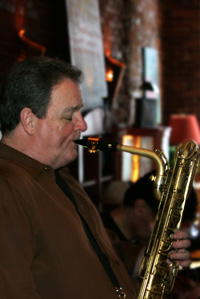"My teaching style is similar to the way I play my horn: pretty much by the seat of my pants. Just like I know what tune I'm playing, I know what lesson I'm talking about. But in the heat of battle, I have no idea how it's going to manifest itself because a kid asks a question and, the next thing you know, you're talking about music from The Three Stooges or something."
"Initially, everybody's afraid of making mistakes. Everybody wants to sound perfect, but improvisation is an imperfect art. Even great players make mistakes. The question is: how can you make it work for you rather than having a breakdown over it? A lot of what I teach is about becoming more comfortable with who you are as a player. And that's not always easy to do because it never ends."
"I want my students to have respect not only for themselves but for everybody around them. We're the artists—we're supposed to be bringing some semblance of humanity to the world. So I want them to respect other music and other cultures. I tell them that this is not about taking away from you what you love, but about adding to it and making you an educated musician. The more you know, the better you're going to be. What I liked as a teenager has nothing to do with John Coltrane or Miles Davis or Beethoven."
"There's probably not a week when I'm at Berklee that something I've been talking about—longer than my students have been alive—all of a sudden looks different. If you're going to continue to grow as a musician, then it just doesn't stop because, as soon as you think you've got something down, there's something else you don't. Or somebody will show up at a gig, and they'll put a tune out, and you'll go, 'Omigod—I can't play that.' "

